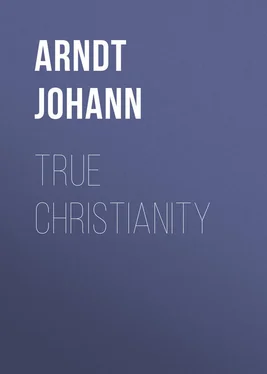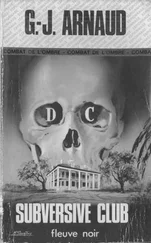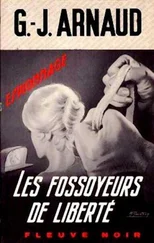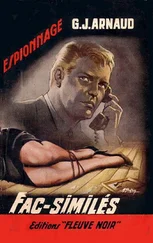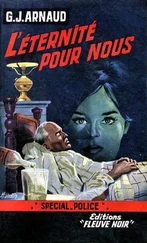Johann Arndt - True Christianity
Здесь есть возможность читать онлайн «Johann Arndt - True Christianity» — ознакомительный отрывок электронной книги совершенно бесплатно, а после прочтения отрывка купить полную версию. В некоторых случаях можно слушать аудио, скачать через торрент в формате fb2 и присутствует краткое содержание. ISBN: , Жанр: foreign_antique, foreign_prose, на английском языке. Описание произведения, (предисловие) а так же отзывы посетителей доступны на портале библиотеки ЛибКат.
- Название:True Christianity
- Автор:
- Жанр:
- Год:неизвестен
- ISBN:http://www.gutenberg.org/ebooks/34736
- Рейтинг книги:5 / 5. Голосов: 1
-
Избранное:Добавить в избранное
- Отзывы:
-
Ваша оценка:
- 100
- 1
- 2
- 3
- 4
- 5
True Christianity: краткое содержание, описание и аннотация
Предлагаем к чтению аннотацию, описание, краткое содержание или предисловие (зависит от того, что написал сам автор книги «True Christianity»). Если вы не нашли необходимую информацию о книге — напишите в комментариях, мы постараемся отыскать её.
True Christianity — читать онлайн ознакомительный отрывок
Ниже представлен текст книги, разбитый по страницам. Система сохранения места последней прочитанной страницы, позволяет с удобством читать онлайн бесплатно книгу «True Christianity», без необходимости каждый раз заново искать на чём Вы остановились. Поставьте закладку, и сможете в любой момент перейти на страницу, на которой закончили чтение.
Интервал:
Закладка:
§ 7. Arndt's course in this matter has often been misunderstood; as it, however, demonstrates him to have been alike a very firm and conscientious man, and also an uncompromising supporter of the distinctive doctrines and usages of the Lutheran Church, the following details may be appropriately furnished. – The language which Luther retained in his form for Baptism ( Taufbüchlein ), after omitting all popish and superstitious practices, was the following. Between the prayer and the reading of Mark 10:13-16, the pastor says: “I adjure thee, thou unclean spirit, in the name of the Father, and of the Son, and of the Holy Ghost, that thou go out and depart from this servant of Jesus Christ, Amen.” – Luther understood the form to be a declaration or distinct confession of the doctrine of Original Sin, and a renunciation of Satan. Still, the Lutheran Church, as such, never recognized the necessity of this ancient form, and its confessional writings never allude to it. After the excitement of feeling peculiar to Arndt's age, had been allayed by time, the Lutheran Church regarded the whole as a mere adiaphoron , that is, a “thing indifferent,” not essentially involving any principle whatever, inasmuch as the doctrine of Original Sin had already been very explicitly set forth and confessed in her Symbolical Books. Such was the opinion of the eminent Lutheran dogmatical writers, Gerhard, Quenstedt, Hollaz, etc.; and men like Baier and Baumgarten even advocated the discontinuance of the practice. It is no longer retained in any prominent manner in the Lutheran Church. – But in the age in which Arndt lived, who was not a man that would obstinately cling to a mere form, the rejection of the formula of Exorcism did involve a principle; for, under the peculiar circumstances, that rejection might be understood to be, first, a rejection of the doctrine of Original Sin, and, secondly, an affirmation that the children of believing parents were in the kingdom of heaven, even before they had received Baptism. But all this seemed to conflict with the Pauline doctrine that all are “by nature the children of wrath.” Eph. 2:3. While, then, J. Ben. Carpzov, the distinguished interpreter of the Symbolical Books, who died in 1557, decides that the “Exorcism” is in itself a matter of indifference, and may without scruple be dropped, he nevertheless holds that if the omission of it should be understood as a denial of the Scripture doctrine of the corruption of human nature (Original Sin), it becomes, in such a case, a matter of principle to retain the formula. ( Isagoge , etc., p. 1122 ff. ; 1608.) Walch, the other eminent interpreter of the Symbolical Books ( Introductio , etc.), does not refer to the matter at all, as it is no essential part of the Lutheran Creed. But Arndt, who was a calm, sagacious, and conscientious observer, and who may justly be considered as claiming that, in forming a judgment respecting him, we should not overlook the spirit of his times, apprehended that the suppression of the “exorcism” was secretly designed to be the forerunner of the suppression of the entire Lutheran faith, which constituted the life of his soul; he could not, under such circumstances, consent to endanger his most precious treasure.
§ 8. Now the duke, John George, after his virtual adoption of the Reformed faith and practice, issued a peremptory order that the formula of Exorcism should no longer be employed in his dominions at the baptism of any infant. Arndt, who was characterized by a childlike submission to those in authority, as long as matters of principle were not involved, could not renounce his faith in God's word, and, especially, his personal conviction of the natural depravity of the human heart. He might have consented to drop a mere form; but he saw here an entering wedge, which justly alarmed him. His apprehensions were subsequently proved to have been only too well founded, when, soon afterwards, Luther's Catechism was suppressed, and another substituted in its place. Hence, as he could not renounce a prominent feature of the Lutheran creed, he firmly and positively refused to obey the ducal command. He remarked, in the written statement which embodied his reasons for refusing to obey, and which was submitted to the civil authorities, that his conscience would not allow him to comply with such a demand of the secular authority – that the orthodox fathers, who had, during thirteen centuries, connected “exorcism” with Baptism, understood it in accordance with the mind and true sense of the Scriptures ( ex mente et vero sensu Scripturæ ) – that it was, therefore, by no means “an impious ceremony” (as the civil ruler, a layman, had thought proper to designate it), – that he must necessarily abide by the decision of his conscience – and, that he would humbly submit to any sentence which his prince might pronounce in the case. The date which he affixed to the document, is Sept. 10, 1590. That sentence, which was soon afterwards proclaimed, deposed Arndt from his office, and banished him from the ducal territories. The reader of Book I. of the “True Christianity,” will now understand, after observing the earnestness with which the author insists on the doctrine of Original Sin, or the depravity of human nature, that he could not conscientiously take any step which would, even indirectly, involve a denial of that sad truth of the Bible, – a truth to which his knowledge of his own heart daily testified.
§ 9. But the Divine Head of the Church did not depose this faithful minister. At the very time when Arndt seemed to be homeless and friendless, two important posts were offered to him – one in Mansfeld, the other in Quedlinburg, an important city, which, after belonging to various rulers, has at last been incorporated with the monarchy of Prussia. The city adopted the Lutheran faith in 1539. Arndt decided to make this place his home, and he labored here with eminent success, during a period of seven years, as the pastor of the church of St. Nicholas. However, he also endured much affliction in this new charge, and his holy zeal and devout spirit, while fully appreciated by intelligent and enlightened believers, were misunderstood and even hated by others, so that he longed to be transferred to another field of labor.
§ 10. He was at length permitted to depart, and removed to the city of Brunswick, situated in the territory of the duke of Brunswick; it aspired at that time to become a “free city,” subject directly to the German emperor. The warfare between the duke and the city, during Arndt's residence in the latter, subjected him to many sore trials. His abode in it, extending from 1590 to 1608, is specially interesting, as he then presented to the religious community Book I. of his “True Christianity.” Dr. A. Wildenhahn, who has, in recent times, furnished us with various charming volumes, descriptive of the times, respectively, of Luther, Spener, Paul Gerhardt, etc., in which he combines “fiction and truth,” has selected this period of Arndt's history, as the one to which he dedicates his two delightful volumes, entitled “Johannes Arndt” (Leipzig, 1861). This author complains that he found it a difficult task to collect full and authentic accounts of Arndt's life. Still, he obtained access to various documents in the archives of the city of Brunswick, and in the royal library in Dresden, which had not been previously examined even by Arndt's best biographer, the Rev. Frederick Arndt, of Berlin; and these materially assisted him in preparing his own work. 1 1 A very accurate and interesting “Life of John Arndt,” was published in English by Rev. Dr. J. G. Morris, of Baltimore, in 1853, which presents the principal events that belong to Arndt's history, and furnishes a faithful portraiture of his personal character. Wildenhahn's work, admirably translated by Rev. G. A. Wenzel, now of Pittsburg, Pa., was published as a serial in the “Lutheran and Missionary,” about three years ago. This work, in a permanent form, would be a rich addition to our English religious literature.
Интервал:
Закладка:
Похожие книги на «True Christianity»
Представляем Вашему вниманию похожие книги на «True Christianity» списком для выбора. Мы отобрали схожую по названию и смыслу литературу в надежде предоставить читателям больше вариантов отыскать новые, интересные, ещё непрочитанные произведения.
Обсуждение, отзывы о книге «True Christianity» и просто собственные мнения читателей. Оставьте ваши комментарии, напишите, что Вы думаете о произведении, его смысле или главных героях. Укажите что конкретно понравилось, а что нет, и почему Вы так считаете.
